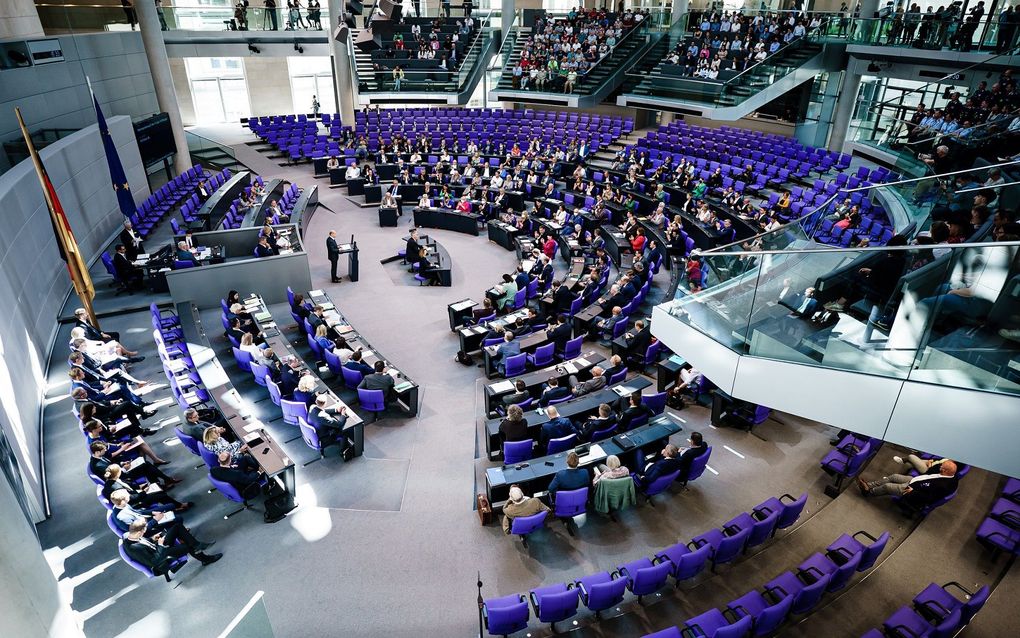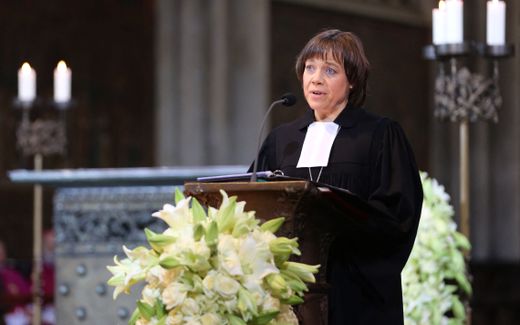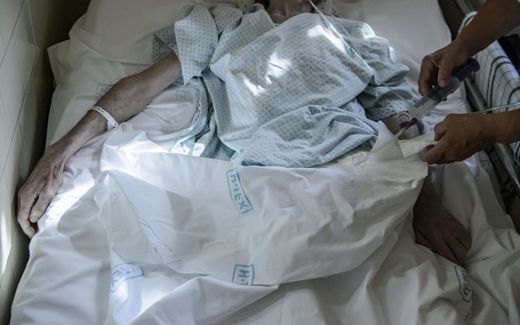German Parliament decides on assisted suicide law

The German Bundestag. Photo EPA, Clemens Bilan
Central Europe
The German Parliament debates legislation on assisted suicide this Friday. Three proposals will be discussed.
The aim of the three proposals is similar: the legalisation of selling lethal drugs for suicide. That is reported by Evangelisch.de. Since 2020, the Federal Constitutional Court has allowed assisted suicide in general. This Friday, the MPs will discuss three concrete forms of legislation to regulate the practice.
Only under certain conditions
The first proposal, written by MPs from the SPD, CDU, the Greens, FDP, and the Left Party, aims at a general ban on commercially assisted suicide, just like before 2020. If this proposal were to be accepted, advertising assistance for suicide for financial gains would be illegal. In addition, people should be discouraged as much as possible from committing suicide. "People with suicidal thoughts need easily accessible opportunities for advice, treatment and support at the end of life. In addition, access to means and places of suicide should be reduced", the draft reads according to the website of the Bundestag.
However, these MPs also argue that assisted suicide should be allowed under certain conditions. Thus, the regulation, in general, would be similar to the rules for abortion. These conditions include that the person requesting assisted suicide is "of legal age and capable of understanding", the Bundestag writes on its website. Furthermore, the person must undergo counselling with a specialist in psychiatry and psychotherapy twice and have "at least one individually adapted, comprehensive and open-ended consultation." According to Evangelisch.de, about 100 MPs support this proposal.
Counselling sessions mandatory
The second draft aims to allow suicide assistance after mandatory counselling sessions. This bill is written by MPs from the FDP, SPD, Left Party and the Green Party. They emphasise that the right to self-determined dying is fundamental. "Anyone who has a free will to end his life has the right to ask for help to do so", the bill reads.
The certainty that a person freely chooses suicide must be established securely, according to the MPs. Therefore, their draft proposes mandatory counselling sessions for those who say they want to die. During these counselling sessions, the meaning, scope and consequences of a failed suicide attempt and alternatives to death should be discussed.
If a person wants to continue despite the information received, he or she should be able to request a prescription for lethal drugs from a doctor, the Bundestag writes. This prescription should, however, not be given earlier than ten days after the consultation to make sure that a person can take a well-considered decision. Approximately 70 MPs favour this bill, Evangelisch.de estimates.
Doctor may decide
The third draft proposes that a doctor should be able to choose suicide for his patients in a medical emergency. This draft is written by MPs from the Greens and the SPD. They suggest that a doctor who treats a patient with a death wish should be able to choose whether a lethal drug should be prescribed in the case of an emergency. A second doctor should confirm the assessment on paper. However, the person in question should take medicine himself.
Comparable to the second draft, this third proposal stresses the importance of a free will. The death wish should be of free will and not likely to change in the foreseeable future, Evangelisch.de writes. About 46 MPs are likely to vote in favour of this proposal, Evangelisch.de writes.
“We need a law on suicide prevention first”
Several German associations argue that a law on preventing suicide should be in place before assisted suicide is regulated by law. "We first have to build brakes before we let the car drive off", Ute Lewtizka, Chairwoman of the Society for Suicide Prevention, says to Evangelisch.de.
Church organisations also called for a law on suicide prevention. According to Eva Maria Welskop-Deffaa, President of Caritas, the Parliament should create regulations that prevent people from being confronted with offers of suicide. "That would be a strong social signal from Parliament for an appropriate balance between protecting life and self-determination", Diakonie President Ulrich Lilie agreed with her.
Also, the German Foundation for Patient Protection is dissatisfied with the three drafts. That is reported by Zeit. The association thinks that the drafts insufficiently strengthen the self-determination of people wishing to die and do not protect them against heteronomy. They point out that psychotherapy is often unattainable for many terminally ill or mentally ill people, for example.
Related Articles






